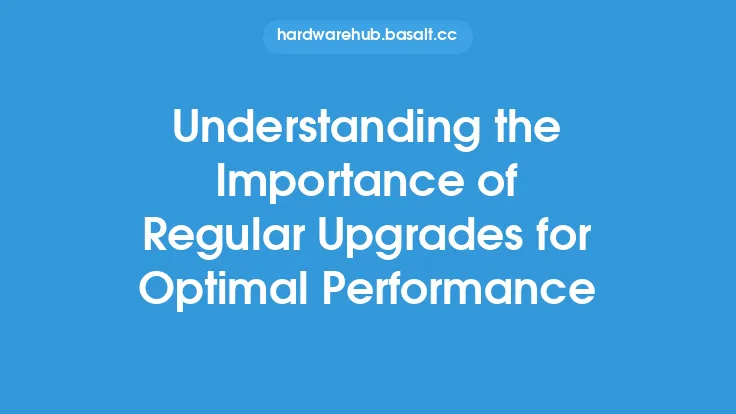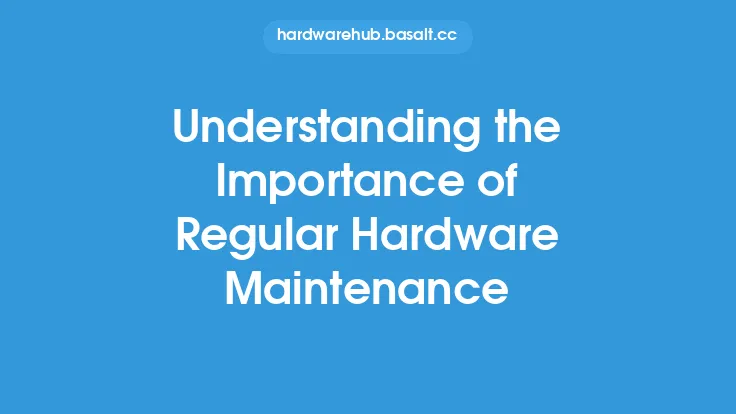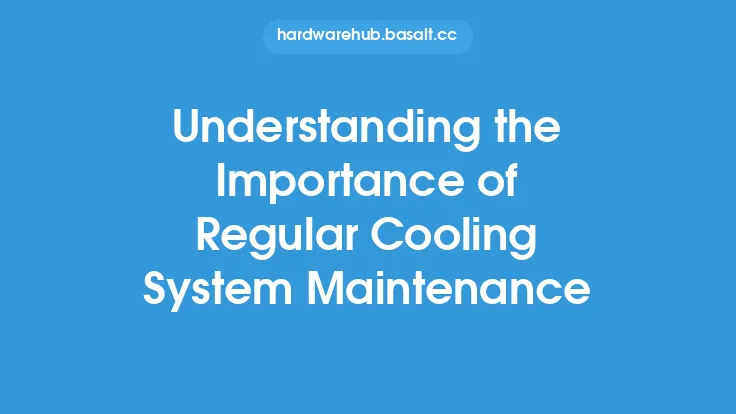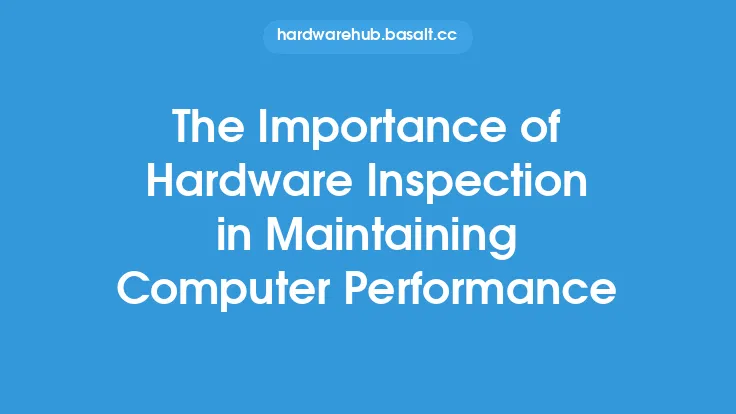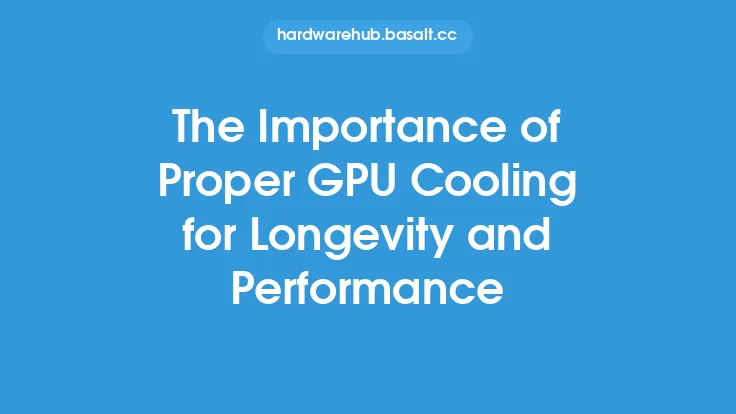Regular maintenance of computer hardware is essential to ensure optimal performance, prevent data loss, and prolong the lifespan of devices. Hardware upkeep involves a series of tasks that help maintain the health and efficiency of computer systems, including cleaning, updating, and replacing components as needed. In this article, we will delve into the importance of regular hardware upkeep and explore the various aspects of maintenance that contribute to optimal performance.
Introduction to Hardware Components
Computer hardware consists of various components, including the central processing unit (CPU), memory (RAM), storage devices (hard drives or solid-state drives), power supply, and peripherals such as keyboards, mice, and monitors. Each component plays a crucial role in the overall performance of the system, and neglecting maintenance can lead to decreased efficiency, errors, and even complete system failure. Understanding the functions and importance of each component is vital to performing effective hardware upkeep.
The Effects of Neglecting Hardware Upkeep
Neglecting hardware upkeep can have severe consequences, including reduced system performance, increased risk of data loss, and decreased lifespan of devices. Dust buildup, for example, can cause overheating, which can lead to component failure and damage to the system. Similarly, failing to update drivers and firmware can result in compatibility issues, errors, and security vulnerabilities. Furthermore, neglecting to clean and maintain storage devices can lead to data corruption and loss, which can be catastrophic for individuals and businesses alike.
Types of Hardware Upkeep
There are several types of hardware upkeep, including preventive, corrective, and predictive maintenance. Preventive maintenance involves performing routine tasks such as cleaning, updating, and replacing components to prevent problems from occurring. Corrective maintenance, on the other hand, involves repairing or replacing components that have failed or are no longer functioning properly. Predictive maintenance involves using monitoring tools and techniques to identify potential issues before they occur, allowing for proactive maintenance and minimizing downtime.
Cleaning and Dust Removal
Cleaning and dust removal are essential aspects of hardware upkeep. Dust buildup can cause overheating, which can lead to component failure and damage to the system. Using compressed air or a soft brush to clean out dust and debris from vents, fans, and heat sinks can help prevent overheating and ensure optimal airflow. Additionally, cleaning the exterior of devices and peripherals can help prevent damage from dust and moisture.
Updating and Replacing Components
Updating and replacing components is crucial to maintaining optimal performance and preventing compatibility issues. Outdated drivers and firmware can cause errors, security vulnerabilities, and compatibility issues, while outdated hardware can lead to decreased performance and efficiency. Regularly updating drivers and firmware, as well as replacing outdated or failing components, can help ensure that systems remain efficient, secure, and compatible with the latest software and technologies.
Power Supply and Cooling Systems
The power supply and cooling systems are critical components of computer hardware, and neglecting their maintenance can have severe consequences. A faulty power supply can cause system crashes, data loss, and even complete system failure, while a malfunctioning cooling system can lead to overheating, component failure, and damage to the system. Regularly checking and maintaining the power supply and cooling systems, including cleaning dust from fans and heat sinks, can help ensure optimal performance and prevent system failure.
Storage Device Maintenance
Storage device maintenance is essential to preventing data loss and corruption. Regularly checking for errors and bad sectors, as well as updating firmware and drivers, can help ensure that storage devices remain healthy and functional. Additionally, using backup and redundancy techniques, such as RAID or cloud storage, can help prevent data loss in the event of a storage device failure.
Conclusion
In conclusion, regular hardware upkeep is essential to ensuring optimal performance, preventing data loss, and prolonging the lifespan of devices. By understanding the importance of hardware upkeep and performing routine maintenance tasks, individuals and businesses can help prevent errors, security vulnerabilities, and system failure. Whether it's cleaning and dust removal, updating and replacing components, or maintaining power supply and cooling systems, hardware upkeep is critical to maintaining the health and efficiency of computer systems. By prioritizing hardware upkeep, individuals and businesses can help ensure that their devices remain efficient, secure, and compatible with the latest software and technologies.
